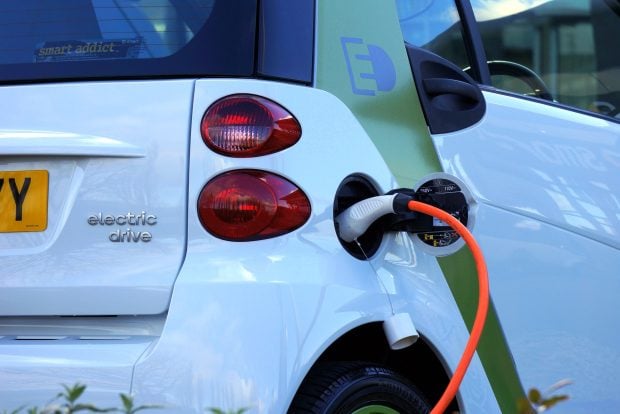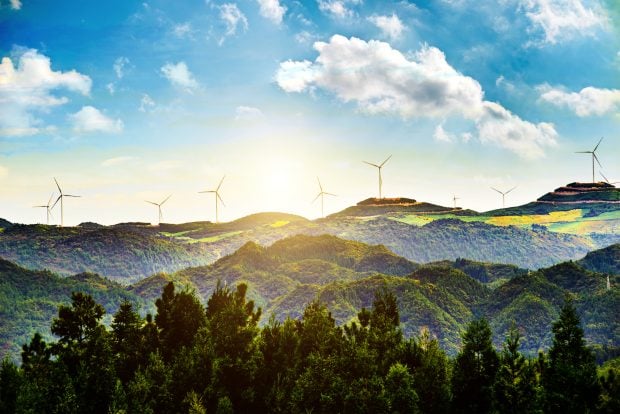The backlash against environmental sustainability – and how to overcome it

Populist politicians are on the rise, tapping into widespread anger at economic decline and flatlining incomes. Catherine Early explores the rise of ‘just transition’ strategies, designed to ensure that new policies are socially as well as environmentally sustainable – and to rebuild public support for action on climate change
Globalisation, automation, and the shift to knowledge-based and digital economies have cut prices for consumers globally, built lucrative new industries and created a host of new manufacturing economies. But not everybody has benefited – and since the financial crisis depressed earnings and squeezed public spending, we’ve seen a political backlash favouring a new generation of populists. Now environmental campaigners are warning that action to tackle climate change could further impoverish the communities left behind over recent decades, increasing support for protectionists and climate change deniers – and ultimately wrecking attempts to build international support for environmental policies.
While the globalisation of trade, migration, supply lines and digital technologies enriched communities in many parts of the developed world, other areas have suffered as traditional manufacturing and extractive jobs have been automated or moved overseas – hitting investment, wage levels and job security. And, criticising immigration and pledging to protect domestic industries, politicians such as Donald Trump, Australia’s Scott Morrison and the UK’s Boris Johnson have won support among these struggling, frustrated voters; global efforts to catalyse action on climate change are suffering as a result.
Awkwardly, many of the economic changes required to address climate change could further weaken those communities worst affected by globalisation. Taxing fossil fuels and carbon-intensive industries, for example, could squeeze low-earners unable to afford electric vehicles and solar panels, while further eroding skilled manual jobs. And we can already see the backlash.
The push back
Last winter, French president Emanuel Macron’s hike in fuel duty – designed to reduce pollution in urban areas – catalysed protests by the ‘gilet jaunes’, leading to months of road blockades, arson attacks and civil unrest. Meanwhile, police have been cracking down in the Chilean capital Santiago after demonstrations against rising metro fares – prompted by the 2017 decision to power the network with renewable energy – spiralled into wider protests against inequality. As a result, the UN has moved this year’s climate negotiations to Spain.

In response, worried climate activists have been promoting the need for a ‘just transition’: the introduction of long-term, properly-funded development strategies to help local areas to rebuild their economies around sustainable technologies – and local workers to access new jobs within them. In early October Lord Deben, the chair of the UK government’s advisory Committee on Climate Change (CCC), urged the Treasury to consider how the cost of reducing emissions can be distributed fairly across society. “The example of the ‘gilets jaunes’ protests in France is evidence of the importance of getting this right,” he wrote in a letter.
The UK government appears to be listening: a review of the country’s transition plans announced by the Treasury in November will consider how to ensure a fair contribution from those who will benefit, while reducing costs for low-income households.
And awareness of the issue is rising. Around 60 nations signed up to the principle of creating a just transition at the UN climate talks in Poland last year, and the ‘green new deal’ championed by left-leaning US politicians promises to provide new, sustainable jobs for those displaced from environmentally-damaging sectors.
A growing concern
In terms of policy implementation, most countries are still at a very early stage. The issue is barely mentioned in the first tranche of national climate plans that followed the signing of the Paris Agreement in 2015. But at the UN’s latest gathering of world leaders on climate change in New York in September, talk of the just transition had become common, says Clare Shakya, director of climate change at the International Institute for Environment and Development (IIED).
“Ideas around a green new deal that now have traction in a number of countries are a sign that people understand that we need to start by looking at the regions that are going to be most affected, and the parts of society that will be most at risk,” she says.
Juan Manuel Santos, former president of Colombia and member of the Elders – an independent group of global leaders working on peace and human rights issues – urges political leaders to be open about the challenges. “The transition is going to be painful at times: we are not being honest if we say it will be easy,” he says. “Governments are going to have to work hard to create social safety nets for those who find their lives disrupted by the move to a low carbon economy.”

Many countries have started the ball rolling by setting up dedicated commissions to draw up policy recommendations. Such bodies have already started work in Scotland, Canada and South Africa. France has established an independent body to advise the government on policy and strengthen social debate about climate change, in a bid to avoid future protests. And at the September climate summit, UN secretary Antonio Guterres launched the Climate Action for Jobs initiative – whose signatories agree to put policies to create jobs and protect livelihoods at the heart of national climate action plans.
The idea in action
Few nations have got to close to implementing just transition strategies. New Zealand is making good progress – see below. And in Germany, a commission developed a phase-out plan for coal by 2038, including federal assistance of more than US$45 billion for restructuring, retraining and job creation in the affected states. But elsewhere, the agenda has faltered.
In Ireland, for example, the government set up a citizen assembly to consider the low carbon transition – among other issues – in 2017. Its recommendations were passed to a cross-party parliamentary committee, which had been created specifically to take them forward. And the committee recommended the creation of a dedicated task force bringing in affected workers and their unions, communities, employers, farmers, government and civil society, while setting out proposals for the midlands area – where job losses in the coal and peat sectors are already underway.
However, according to campaigners the government’s resulting climate plan has watered down the committee’s proposals. Instead, they say, it makes “vague” commitments and uses an existing review group to identify transition needs, rather than creating a task force committed to developing solutions with affected communities and industries.
Catherine Devitt, head of policy at Stop Climate Chaos in Ireland, says: “Unfortunately, I think the response we’ll see from government will be reactive rather than proactive. They’ll just act when they get job losses, rather than putting in place a concrete plan and negotiation process that includes the communities that are most affected, the relevant government departments and trade unions.”
Overcoming opposition
David Waskow, director of the international climate initiative at US think tank the World Resources Institute, argues that in order to avoid opposition, measures on a just transition for climate should take into account the broader context of social and economic policy. For example, he says, France’s fuel tax rise was in many ways “just the straw that broke the camel’s back” following shifts in taxation and other changes in rural communities that had nothing to do with climate policy.
Policies on climate change can be designed to reduce carbon emissions whilst reducing inequality, he points out. For example, Canada’s British Columbia levies a carbon tax on consumers’ use of fossil fuels, but returns some of the money to low income groups in the form of a tax credit – ensuring that poorer households, for whom fuel and power represent a large proportion of their outgoings, do not see their disposable income.
Santos points out that successful transitions will require governments to involve multiple ministries and departments. “This is not just an issue for the environmental minister. A just transition will require a holistic planning approach that also takes into account health, finance, employment, industry and education,” he says. “By doing this, governments will have a real opportunity to ensure that the move to the zero carbon economy doesn’t mimic the inequality of the fossil fuel economy, but instead provides both social and environmental benefits.”
Businesses also need to be involved in developing new economic strategies, says Shakya: “It’s no good just saying that you have a grand idea for a just transition and asking businesses to put forward their best ideas. You need to enter into a long conversation with them in advance of a call like that so they can begin to understand where their transition risks lie, and what parts of their supply chain are most reliant on fossil fuel-powered processing or transport. They can then begin to see what they need to look at, and get involved.”
The stakes are high
Commentators agree that there could be grave consequences if governments get this wrong. Opposition to climate change policies could put at risk the chances of keeping global temperature rise within 1.5C, the threshold scientists deem safe. And the CCC has already warned the UK government that the next phase of climate action will need to involve citizens much more strongly, as only 40% of the required emissions reductions can be achieved through central government policy and legislation.
If governments don’t proactively build strategies to help local economies adapt, warns Santos, social and economic inequality could become still further embedded. “The Elders have been calling on the international community to ensure that justice is not an optional component of addressing climate change, but fundamental to every decision made,” he says.
Waskow agrees, saying that climate policies that harm local communities will prove counterproductive. “Why do we pursue climate action? It’s not for its own sake, it’s to protect and improve people’s lives, and protect ecosystems and species,” he says. “If we’re not thinking about this in a coherent and holistic way and we don’t bring social and economic issues into the mix, we’re missing the point.”
Case study: a just transition for New Zealand

New Zealand’s national debate on how to manage its transition to a low carbon economy is already underway, and the government has established a dedicated unit on the issue within its Ministry of Business, Innovation and Employment (MBIE).
The unit is initially focussing on Taranaki: a region in the west of the North Island that is the centre of the country’s oil and gas industry. In April 2018, the government announced it would end the granting of new offshore oil exploration licenses in the country, limiting new exploration permits to onshore Taranaki.
The MBIE’s unit has created a role for a manager specifically for the region to work with industry, Māori, workers, youth and the wider community to limit the impact on the community. The government has set up a US$17m clean energy centre for the region directly employing 45 people on innovation and product development, and has also granted US$12.7m for research and development. A strategy for the region’s economy to 2050 has also been drawn up, following large-scale consultation involving nearly 30 workshops, including one specifically aimed at young people.
New Zealand’s agriculture sector is the most vulnerable in terms of the low carbon transition, according to Shane Wilson, manager for Just Transitions at the MBIE. Nitrous oxide (N2O) and methane from agriculture make up around half the country’s total greenhouse gas emissions.
To deal with this, the government has decided to put a price on emissions from livestock and fertiliser from 2025. Responses to the consultation on the issue reveal that sheep and beef farmers fear that this will damage rural communities.
But the government has also identified new opportunities for agricultural employment through the transition, in particular through new technologies. These have the potential for reducing methane, N2O and CO2 emissions, and there’s significant potential to expand the US$950m economic contribution currently made by agricultural technologies, Wilson says.























